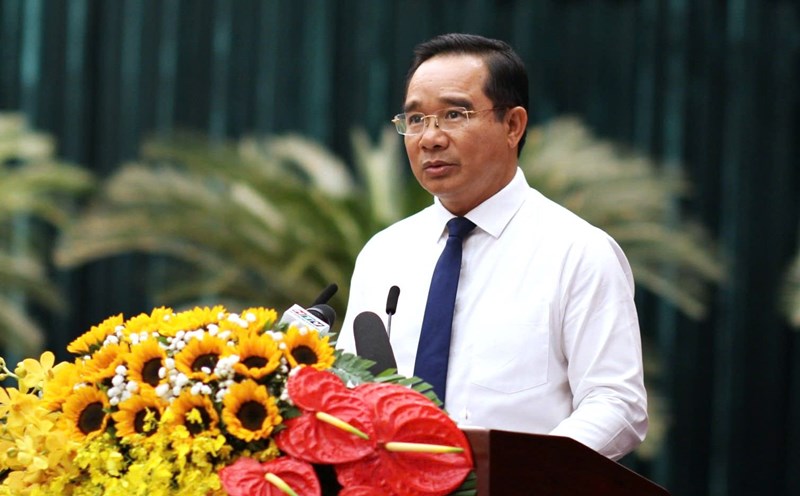Efforts to reduce dependence on the US dollar in global trade are emerging more and more. US President Donald Trump has returned to the international economic arena with the same drastic style and strategy as before.
This time, Mr. Trump pointed a spear at BRICS, a group of major economies including Brazil, Russia, India, China, South Africa, Egypt, Ethiopia, Iran, Saudi Arabia and the UAE, Indonesia with threats and criticism from the beginning.
Currently, BRICS is discussing creating a common currency that could challenge the USD's dominance in global trade. In response, Mr. Trump spoke in a harsh tone, threatening to impose a 100% tax and completely remove BRICS countries from the US market if they continue to accelerate the de-dollarization process.
Mr. Trump also threatened to impose a 25% tariff on steel and aluminum of all countries, an additional 10% tariff on Chinese goods, and counterpart tariffs on US goods of all countries.
Writing in Geopolitical Monitor, an expert from the Timothy Hopper International Research Association said that on the strategic surface, Mr. Trump's moves seem to be aimed at strengthening the position of the USD. However, deeper analysis shows that these moves may have the opposite effect.
China is especially determined to accelerate the de-dollarization process. The country has built alternative financial systems, promoted the localization of the yuan, and diversified foreign exchange reserves.
In this view, Mr. Trump's statements are not a deterrent to BRICS, but these countries can consider them a motivation for emergency action.

Trump's continued use of tariffs and sanctions as economic diplomatic tools not only deeps the division between the US and neighboring countries but could also prompt US neighboring countries and partners to seek alternatives to the US dollar.
According to press reports, China and Russia have signed national currency trading agreements and enhanced cooperation within the BRICS framework.
Although the creation of a common currency and BRICS still faces many challenges, the determination to reduce dependence on the USD is clear. Mr. Trump may cause short-term obstacles, but this only reinforces countries' concerns about the US using the US dollar as a foreign economic tool.
Hopper pointed out that the dominance of the US dollar is largely built on the belief that the US will act as a responsible leader in the global economy and that US dollar-based assets will remain stable and accessible. However, by turning the US dollar into a weapon through sanctions and tariffs, Trump risks undermining this trust, not only among rivals but also among allies. As this confidence weakens, the US dollars position as a world reserve currency weakens.
According to Mr. Hopper, regardless of the direction, the trend of de-dollarization will continue to develop, posing a big challenge for the position of the greenback in the international arena.











